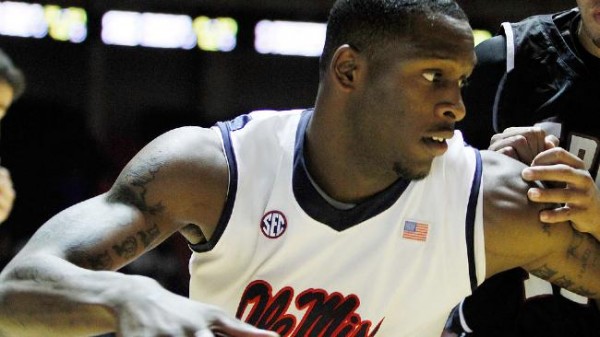Division I College Basketball Players Are Incredible Athletes; Not Even The Mighty NFL Can Deny It
Posted by Chris Johnson on April 30th, 2013Chris Johnson is an RTC Columnist. He can be reached @ChrisDJohnsonn.
Height, size and speed are three of the most basic common denominators transcending the walls of sport-specific performances and, at levels as high as Division I and the professional ranks, allowing players to span their natural gifts across multiple athletic endeavors. Jim Brown is the archetypical multi-sport figure, by most accounts the most dominant running back in professional history and an unfairly fast and strong lacrosse player in his own right. He is the measuring stick by which multi-sport predecessors are, well, measured, and basically everything since — Deion Sanders and Bo Jackson are more recent highlights — has fallen well short of Brown’s tremendous accomplishments. Whether because of kids’ general rushed identification of single-sport priorities – and growing pressures, partially or fully imposed by parents, to devote Gladwellian 10,000-hour practice requirements to a specific sport – or a broader recognition that playing two sports professionally is just really hard, the days of Brown-like dominance appear to be behind us.

After averaging 14.5 points and 9.7 rebounds for Ole Miss this season, Murphy will try and make it in the NFL (AP Photo).
Plenty of others have tried to make the leap, and the latest evidence comes by way of former Ole Miss forward Murphy Holloway, who after not playing organized football since his sophomore year in high school signed a free agent contract this weekend with the defending Super Bowl champion Baltimore Ravens. The motivation is plainly evident: Holloway is a big (6’7’’, 240 lbs.), fast and explosive athlete. He spent four years honing his hoop skills – curiously enough, Holloway played for the Rebels for two seasons, transferred to South Carolina for a redshirt year, then returned to Ole Miss to play out the second half of his eligibility scorecard – and after helping lead Marshall Henderson and co. to their first NCAA Tournament in more than a decade, the avenues for a professional basketball career apparently didn’t match the opportunity to join the United States’ most lucrative and nationally unimpeachable sports enterprise.
The NFL is the NFL, and Holloway just wasn’t going to turn down the concept of lining up alongside Joe Flacco. There’s precedent for success here – Holloway isn’t the only college player to test the NFL waters. Future Hall of fame Tight Ends Tony Gonzalez and Antonio Gates used their NBA-crafted athleticism to launch prolific NFL careers, and Holloway’s physique and athletic traits are suited for the same position. To put my NFL scouting cap on for a second, in the gnarliest Jon Gruden voice possible: “This guy is special. You can’t teach 6’7’’ and 240.” Maybe so. But really, that’s like, I don’t know, the only tangentially justifiable reason a guy like Holloway gets a shot at the NFL. Athleticism is pure and transferable and reliable and, as Baltimore made abundantly clear over the weekend, a commodity.
Because unless Holloway planned this all along, unless he was cryptically sneaking into Rebels’ football position meetings and training with coaches, unless he spent every iota of time off the court memorizing the Madden 2013 playbook, Holloway enters the league with a big body, precise footwork, and not much else. Great athletes are adept in multiple disciplines, but even so joining the best football league in the world with but a dalliance of high school football and really nice physical measurables on your resume is kind of astonishing, when you really think about it.
This development hits on a larger point: Division I basketball players are some of the best athletes in the world. Holloway’s deal with the Ravens didn’t spill the secret – just go watch any NCAA Tournament-quality team compete on a nightly basis. As much as fans and critics like to take shots at the game’s deteriorating athletic and aesthetic appeal, the proof is baked into Holloway’s, into former Wisconsin-Milwaukee forward Demetrius Harris’ (into Spike Albrecht!) stories: basketball players are some of the biggest and fastest creatures in this humble galaxy. They are highly impressive to watch in their own sport and, as Holloway and Jimmy Graham and Gates and Gonzales have proven, more than capable of throwing on a few pads, running some routes and catching an oddly-shaped pigskin-oriented hemisphere. After four years of bruising post-operation and high pick-and-rolls, what’s a deep post route, anyway? Murphy Holloway is the next, and he sure won’t be the last, college hoops big man to make the conversion. The fundamental imperative athletic standards of quality D-I hoop will keep churning out NFL-made physical products, and if the NFL continues its mind-numbing universal sports media takeover, plenty will jump at the opportunity if presented.












































